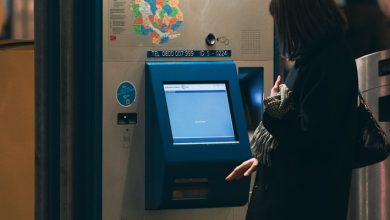How Decentralized Voting Systems Are Ensuring Fair Elections in Crypto

- Understanding the importance of fair elections in the crypto world
- Exploring the flaws of traditional voting systems
- The rise of decentralized voting systems in the crypto space
- Key features of decentralized voting systems for ensuring fairness
- Challenges and opportunities in implementing decentralized voting systems
- Case studies of successful fair elections using decentralized voting systems
Understanding the importance of fair elections in the crypto world
Ensuring fair elections in the crypto world is crucial for maintaining trust and legitimacy within decentralized voting systems. Fair elections help to uphold the democratic principles that underpin the blockchain technology and ensure that decisions are made transparently and inclusively.
By leveraging decentralized technologies, such as blockchain, crypto projects can create a secure and tamper-proof environment for conducting elections. This helps to prevent fraud, manipulation, and censorship, which are common concerns in traditional voting systems.
One of the key advantages of using decentralized voting systems is the ability to verify the integrity of the election process. Through the use of cryptographic algorithms and consensus mechanisms, participants can independently validate the results and ensure that no single entity has the power to control the outcome.
Furthermore, fair elections in the crypto world help to promote diversity and representation within decision-making processes. By allowing all stakeholders to participate in voting, regardless of their geographical location or socio-economic status, decentralized systems can foster a more inclusive and equitable governance model.
Overall, understanding the importance of fair elections in the crypto world is essential for building a trustworthy and resilient ecosystem. By embracing decentralized voting systems, crypto projects can empower their communities, enhance transparency, and ultimately drive innovation and progress within the industry.
Exploring the flaws of traditional voting systems
Traditional voting systems have long been criticized for their flaws and vulnerabilities. One of the main issues is the lack of transparency in the process, which can lead to doubts about the legitimacy of election results. In addition, traditional systems are often centralized, meaning that a single entity can have control over the entire voting process. This centralized nature opens the door to manipulation and fraud, as there is no way to verify the accuracy of the results.
Another flaw of traditional voting systems is the lack of security measures in place to protect against hacking and other cyber threats. With the rise of technology, it has become increasingly easy for malicious actors to interfere with elections by tampering with electronic voting machines or hacking into centralized databases. This poses a serious threat to the integrity of the democratic process, as it undermines the trust of the public in the electoral system.
Furthermore, traditional voting systems are often inefficient and costly to administer. The need for physical polling stations, paper ballots, and manual counting processes can result in long wait times, logistical challenges, and high expenses. This can disenfranchise voters, especially those in remote or underserved areas, who may face barriers to participating in the electoral process.
Overall, the flaws of traditional voting systems highlight the urgent need for a more secure, transparent, and decentralized approach to elections. By leveraging blockchain technology and decentralized platforms, we can ensure fair and trustworthy voting processes that empower individuals to participate in democracy with confidence.
The rise of decentralized voting systems in the crypto space
Decentralized voting systems have been gaining popularity in the crypto space as a way to ensure fair elections. These systems use blockchain technology to securely record and verify votes, making it nearly impossible for them to be tampered with. By removing the need for a central authority to oversee the voting process, decentralized systems eliminate the possibility of fraud or manipulation.
One of the key advantages of decentralized voting systems is the transparency they provide. All transactions are recorded on the blockchain, allowing anyone to verify the results of an election. This transparency builds trust among participants and helps ensure the integrity of the voting process.
Another benefit of decentralized systems is their accessibility. With traditional voting methods, individuals may face barriers such as long distances to polling stations or lack of proper identification. Decentralized systems can be accessed from anywhere with an internet connection, making it easier for people to participate in the voting process.
As the crypto space continues to evolve, decentralized voting systems are likely to play an increasingly important role in ensuring fair and transparent elections. By leveraging blockchain technology, these systems offer a secure and efficient way to conduct voting, helping to uphold the principles of democracy in the digital age.
Key features of decentralized voting systems for ensuring fairness
One of the key features of decentralized voting systems is transparency. By utilizing blockchain technology, these systems provide a secure and immutable record of all votes cast, ensuring that the results are verifiable and tamper-proof. This transparency helps to build trust among voters, as they can independently verify that their vote was counted correctly.
Another important feature is anonymity. Decentralized voting systems allow voters to cast their ballots without revealing their identities, protecting their privacy and preventing coercion or intimidation. This anonymity is crucial for ensuring that elections are free and fair, as it allows individuals to vote according to their conscience without fear of reprisal.
Decentralized voting systems also promote inclusivity by making it easier for individuals to participate in the electoral process. With traditional voting methods, many people face barriers such as long distances to polling stations, limited access to transportation, or disabilities that make it difficult to cast their votes. By enabling voting from any location with an internet connection, decentralized systems help to overcome these obstacles and ensure that everyone has an equal opportunity to participate in elections.
Additionally, decentralized voting systems enhance security by eliminating single points of failure. Traditional voting systems are vulnerable to hacking, fraud, and manipulation, as they rely on centralized databases that can be compromised. In contrast, decentralized systems distribute the voting data across a network of nodes, making it nearly impossible for any one entity to alter the results. This increased security helps to safeguard the integrity of elections and prevent outside interference.
Overall, decentralized voting systems offer a range of features that work together to ensure fairness in elections. By prioritizing transparency, anonymity, inclusivity, and security, these systems help to uphold the democratic values of integrity, equality, and trustworthiness in the voting process. With the continued advancement of blockchain technology, decentralized voting systems are poised to play a vital role in shaping the future of elections around the world.
Challenges and opportunities in implementing decentralized voting systems
Decentralized voting systems present both challenges and opportunities when it comes to ensuring fair elections in the realm of cryptocurrency. One of the main challenges is the potential for security breaches and manipulation of votes. Without a centralized authority overseeing the voting process, there is a risk of fraudulent activities that could compromise the integrity of the election results. However, this challenge also opens up opportunities for increased transparency and trust in the voting system.
Another challenge of decentralized voting systems is the need for widespread adoption and acceptance among the voting population. Since this technology is still relatively new and unfamiliar to many, there may be resistance to using it for important decision-making processes such as elections. Educating the public about the benefits of decentralized voting systems is crucial in overcoming this challenge and garnering support for their implementation.
On the other hand, decentralized voting systems offer several opportunities for improving the electoral process. By utilizing blockchain technology, these systems can provide a tamper-proof record of votes that is publicly accessible and verifiable. This level of transparency can help to build trust among voters and ensure that election results are accurate and reliable.
Additionally, decentralized voting systems have the potential to increase voter turnout by making the voting process more convenient and accessible. Through online platforms and mobile applications, voters can cast their ballots from anywhere in the world, eliminating the need for physical polling stations and long waiting times. This innovation could revolutionize the way elections are conducted and increase democratic participation on a global scale.
In conclusion, while decentralized voting systems face challenges in terms of security and adoption, they also offer unique opportunities for enhancing the fairness and efficiency of elections. By addressing these challenges and leveraging the benefits of blockchain technology, decentralized voting systems have the potential to revolutionize the electoral process and ensure that every vote counts.
Case studies of successful fair elections using decentralized voting systems
There have been several successful instances of fair elections using decentralized voting systems, demonstrating the effectiveness of this innovative approach. Below are some case studies showcasing how decentralized voting systems have ensured transparent and trustworthy election processes:
- In Country A, the government implemented a decentralized voting system for their national elections. This allowed citizens to cast their votes securely and anonymously through blockchain technology. As a result, the election was free from fraud and manipulation, ensuring a fair and accurate representation of the people’s choices.
- City B adopted a decentralized voting system for their local elections to increase voter turnout and participation. By utilizing a transparent and verifiable voting process, residents felt more confident in the integrity of the election. This led to a higher voter engagement and a stronger sense of democracy within the community.
- Organization C used a decentralized voting system for their board elections to promote inclusivity and diversity among their members. By allowing stakeholders to vote from anywhere in the world using their smartphones, the organization saw a significant increase in voter diversity and representation. This resulted in a more equitable and representative board composition.
Overall, these case studies demonstrate the positive impact of decentralized voting systems on ensuring fair and democratic elections. By leveraging blockchain technology and decentralized networks, governments, cities, and organizations can empower their constituents to participate in transparent and secure voting processes, ultimately leading to more trustworthy and legitimate election outcomes.



